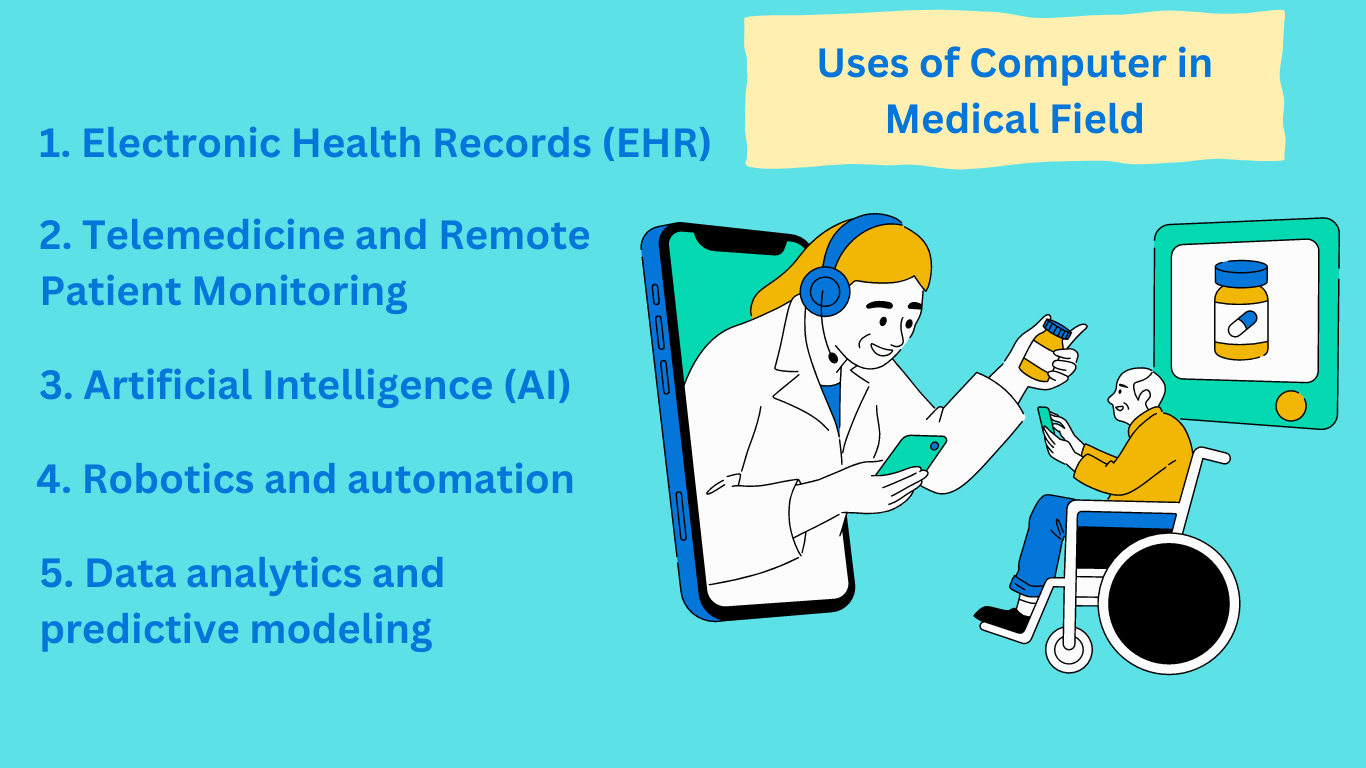Uses of Computer in Medical Field : In the ever-evolving world of healthcare, technology plays an increasingly vital role. With the advent of computers and the rapid advancements in artificial intelligence and data analytics, the medical field is undergoing a profound transformation.
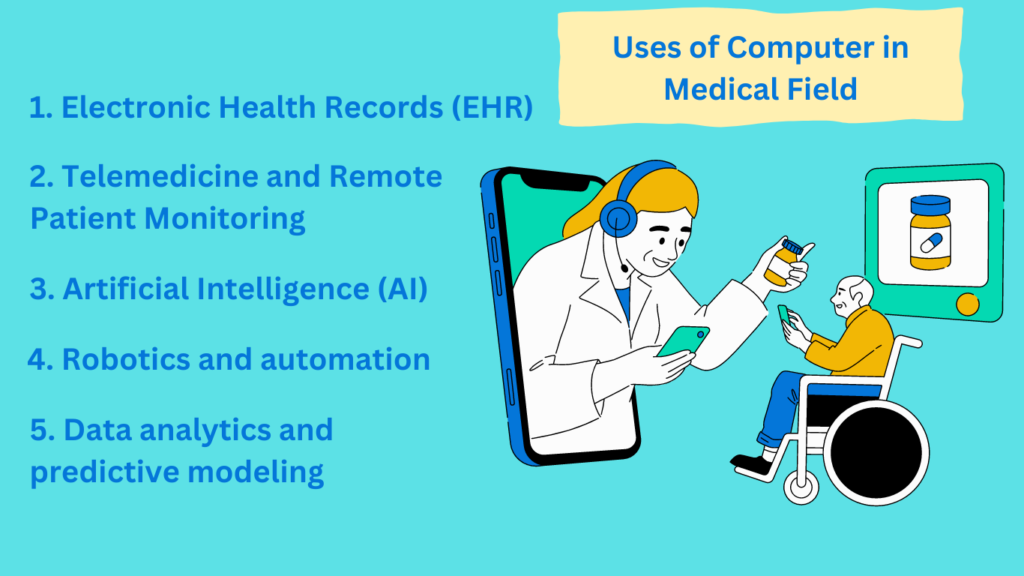
This article explores the incredible impact of technology on the medical industry, highlighting how computers are reshaping the way healthcare professionals deliver care and improving patient outcomes.
Uses of Computer in Medical Field
1. Electronic Health Records (EHR) and their impact
One of the most significant advancements in healthcare technology is the adoption of Electronic Health Records (EHR). Gone are the days of paper-based medical records, which were not only cumbersome to manage but also prone to errors and misplacement.
EHR systems have revolutionized the way patient information is stored, accessed, and shared among healthcare providers. These systems allow for seamless integration of medical data, including patient history, laboratory results, medication records, and imaging studies.
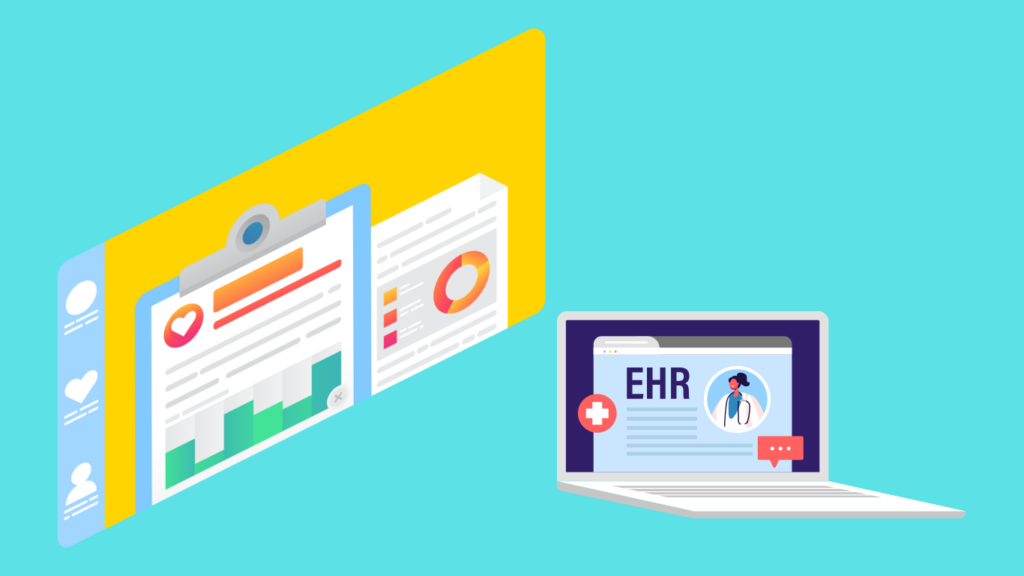
They can review their test results, track their progress, and communicate with their healthcare providers more easily. This level of transparency and patient involvement fosters a sense of ownership over one’s health, ultimately leading to better health outcomes.
2. Telemedicine and Remote Patient Monitoring
Telemedicine, defined as the delivery of healthcare services remotely using telecommunications technology, has revolutionized the way patients receive medical care. Through video consultations, patients can connect with healthcare providers from the comfort of their own homes, eliminating the need for travel and reducing wait times.
This is especially beneficial for individuals living in remote areas or those with limited mobility.Telemedicine has proven particularly valuable during the COVID-19 pandemic, where social distancing measures have limited in-person visits to healthcare facilities.
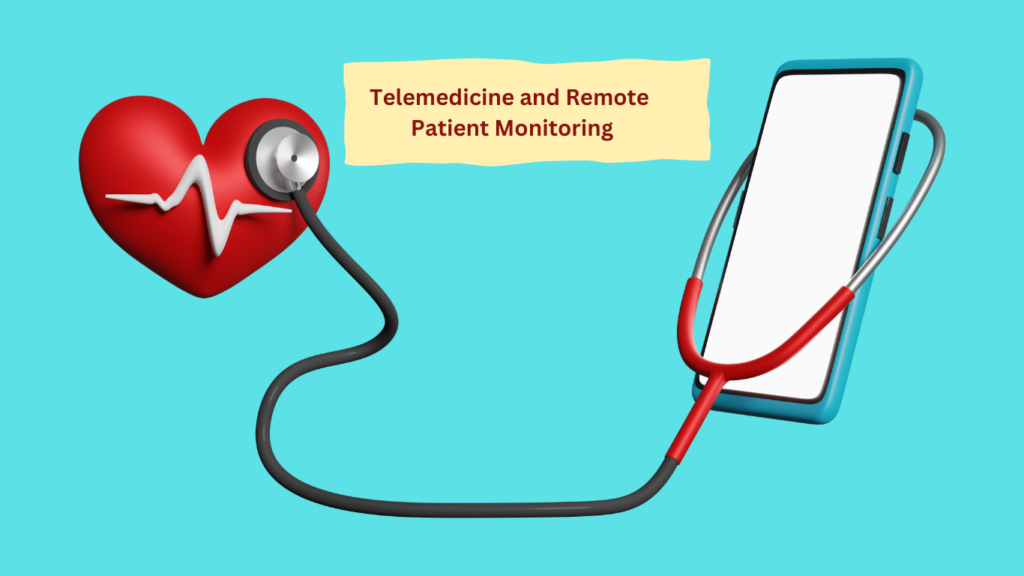
In addition to telemedicine, remote patient monitoring has also become increasingly prevalent. With the help of wearable devices and sensors, patients can now track their vital signs, medication adherence, and disease progression from the comfort of their own homes.
3. Artificial Intelligence (AI) in healthcare
Artificial Intelligence (AI) has made significant strides in recent years and is now being leveraged in various aspects of healthcare. From image recognition to natural language processing, AI algorithms are proving to be invaluable tools in diagnosing diseases, predicting outcomes, and guiding treatment decisions.
One of the areas where AI has made significant advancements is in medical imaging. Radiologists are using AI algorithms to analyze medical images, such as X-rays, MRIs, and CT scans, to detect abnormalities and provide accurate diagnoses.
Furthermore, AI-powered Chat bots and virtual assistants are enhancing patient engagement and improving access to information. These intelligent systems can provide patients with accurate medical advice, answer common health-related questions, and even triage patients based on the severity of their symptoms.
4. Robotics and automation in surgery
Another area where computers are transforming healthcare is in the field of surgery. Robotics and automation have revolutionized the way complex surgical procedures are performed, offering increased precision, improved outcomes, and reduced recovery times.
Robotic-assisted surgery allows surgeons to perform minimally invasive procedures with enhanced dexterity and control. By manipulating robotic arms equipped with surgical instruments, surgeons can access hard-to-reach areas, perform intricate maneuvers, and achieve greater precision compared to traditional open surgery. This results in smaller incisions, reduced blood loss, and faster recovery times for patients.
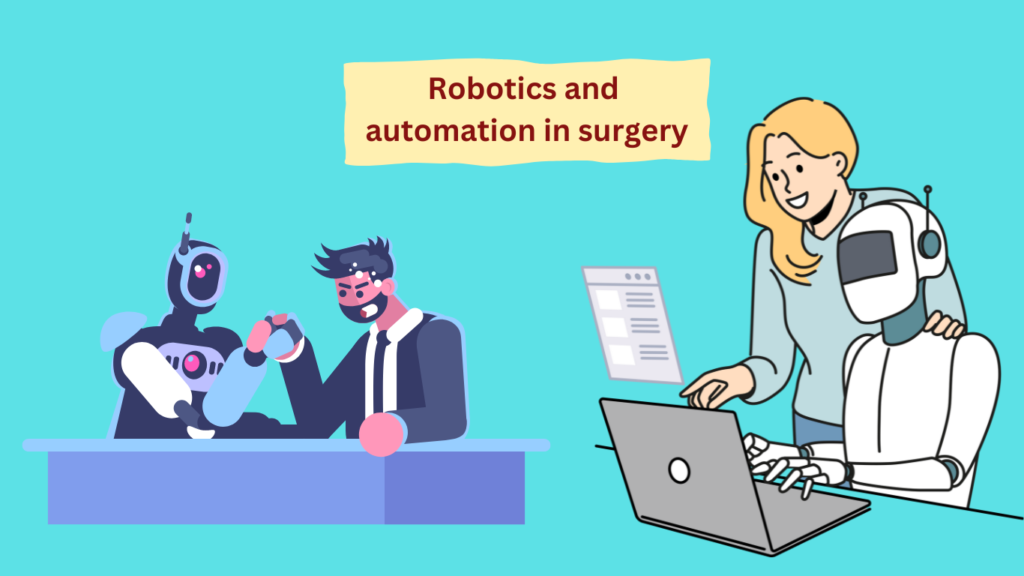
Automation is also playing a significant role in surgical workflows. From preoperative planning to inoperative guidance, computer algorithms are helping surgeons optimize their surgical approaches, identify potential risks, and improve patient outcomes.
For example, computer-assisted navigation systems can provide real-time guidance during surgeries, ensuring accurate implant placement and reducing the risk of complications.
5. Data analytics and predictive modeling in healthcare
The abundance of data in healthcare has the potential to drive significant advancements in patient care and population health. Data analytics and predictive modeling techniques are being used to extract actionable insights, identify trends, and inform decision-making processes.
By analyzing large datasets, healthcare providers can identify patterns and correlations that may not be apparent through traditional methods. This can lead to improved disease detection and prevention strategies, more targeted interventions, and enhanced public health initiatives. For example, data analytics can help identify communities at high risk for certain diseases, allowing for targeted preventive measures and resource allocation.
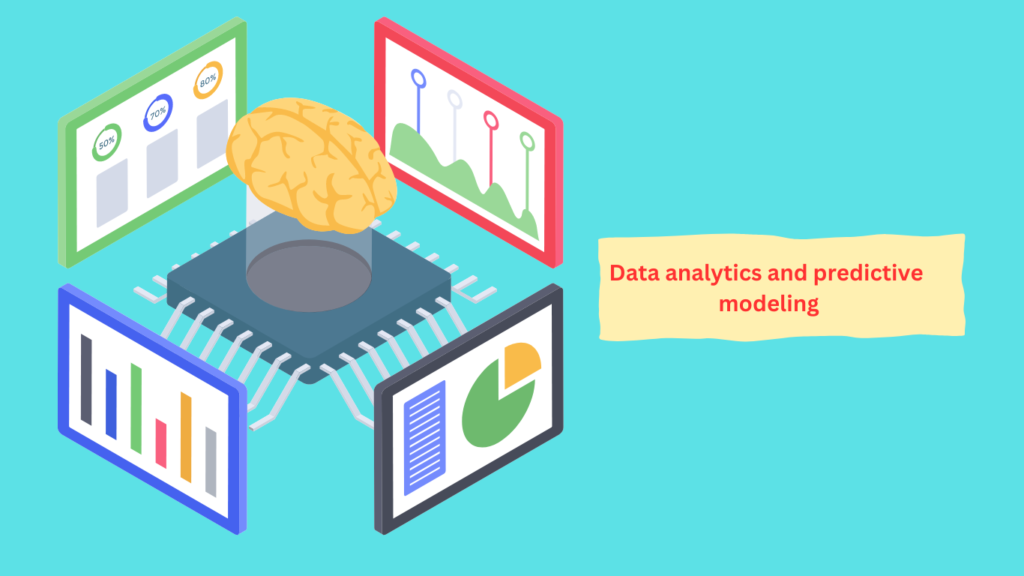
The future of data analytics in healthcare holds great promise. With advances in technology and the availability of vast amounts of data, we can expect to see even more sophisticated analytics tools and predictive models that will revolutionize the way healthcare is delivered and improve patient outcomes.
Conclusion: Uses of Computer in Medical Field
As we have explored in this article, computers are revolutionizing healthcare in ways that were once unimaginable. From Electronic Health Records (EHR) to tele medicine, artificial intelligence to robotics, and data analytics to predictive modeling, technology is reshaping the landscape of healthcare and driving innovation.
In conclusion, computers are transforming the medical field, revolutionizing the way healthcare is delivered, and improving patient outcomes. With ongoing advancements in technology, the future of healthcare holds great promise. As we continue to embrace and harness the power of computers, we can expect a future where healthcare is more efficient, personalized, and accessible to all.
So that’s all about Uses of Computer in Medical Field.
- TOP 12 Uses of Computer in Different Fields
- Advantages and Disadvantages of Internet Essay
- TOP 7 Use of Computer in Office

